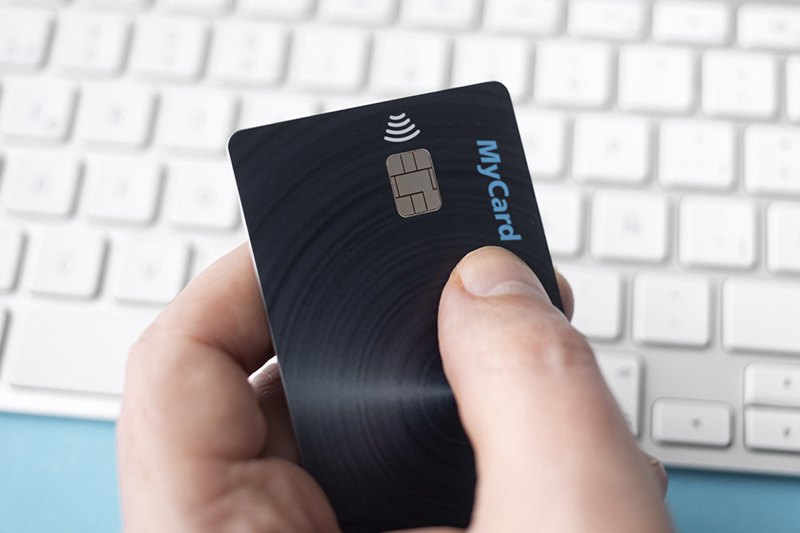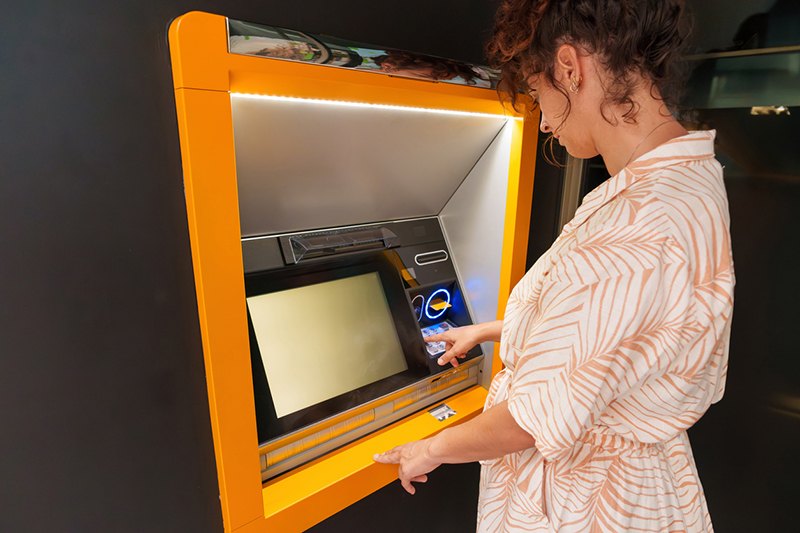
How to Open a Bank Account in Spain
Alexey | · 14 min. read
Buying property in Spain, especially in coveted locations like Marbella, is a dream for many individuals worldwide. Whether it’s a holiday home, an investment property, or a permanent residence, navigating the process requires careful planning and understanding of local regulations. One of the most crucial steps in this journey is knowing how to open a bank account in Spain.
A local bank account simplifies the handling of property transactions, from down payments to ongoing management expenses. In this guide, we’ll explore the types of bank accounts available, the step-by-step process for opening an account, why having a Spanish bank account is essential, and tips to ensure a smooth banking experience.
- Table of contents
- Why You Need a Bank Account in Spain
- Choosing the Right Bank Account
- Step-by-Step Guide: How to Open a Bank Account in Spain
- Common Challenges and Solutions
- Tips for Choosing the Right Bank
- Final Thoughts: Opening a Bank Account in Spain
Why You Need a Bank Account in Spain
Establishing a bank account in Spain is an essential step for anyone looking to settle in or invest in the country. It serves not only as a means to manage your finances but also as a key component of integrating into the Spanish system. From simplifying everyday transactions to ensuring legal compliance, having a local bank account brings a multitude of benefits. Here are some of the primary reasons why opening a bank account in Spain is crucial:
- Facilitating Property Transactions: A local bank account streamlines payments for property transactions, including down payments and mortgage installments, eliminating currency conversion hassles and international transfer delays.
- Managing Utility Bills: Handling routine utility bills (electricity, water, internet) is more straightforward with a local bank account, ensuring timely payments and avoiding service interruptions.
- Property Management: If you plan to rent out your property or require maintenance, having a local account makes it easier to manage regular expenses, such as paying property management fees or service providers.
- Legal Compliance: Spanish law often mandates the use of a local bank account for significant financial transactions. Having a bank account also reflects your financial footprint in Spain, which can help build a local credit history.
Managing your finances is just one aspect of living in Marbella. To get a clearer picture of what life here might cost, check out our detailed guide on the cost of living in Marbella here.

Choosing the Right Bank Account
When exploring how to open a bank account in Spain, it's essential to understand the types of accounts available, particularly for non-residents.
Non-Resident Accounts
These accounts are specifically designed for individuals who do not reside in Spain but need a local bank account for property-related transactions. Key features include:
- Easy Opening Process: Non-resident accounts typically have less stringent requirements compared to resident accounts, making them accessible for expatriates and investors.
- Basic Banking Features: While these accounts may not offer advanced banking services, they provide essential features suitable for managing property-related expenses.
Resident Accounts
If you plan to spend a significant amount of time in Spain or become a resident, a resident account may be more suitable. Benefits include:
- Comprehensive Features: Resident accounts often come with a wider range of banking services, such as loans, higher transaction limits, and better customer support.
- Local Integration: These accounts help you integrate into the Spanish financial system, making financial transactions smoother as you establish a more permanent presence.
Step-by-Step Guide: How to Open a Bank Account in Spain
Now that you understand the importance of having a bank account and the various types available, let’s explore the detailed steps on how to open a bank account in Spain:
1. Research and Choose a Bank
Start your journey by thoroughly researching different banks in Spain. Popular choices include Banco Santander, BBVA, Bankinter, and CaixaBank, each offering unique features. When selecting a bank, consider the following factors:
- Fee Structures: Compare various fees, including monthly maintenance charges, ATM withdrawal fees, and international transfer costs. Understanding the fee structure can help you avoid unexpected expenses in the future.
- Online Banking Features: Evaluate the quality of their online and mobile banking services. Features like easy navigation, online payment options, and budgeting tools can significantly enhance your banking experience.
- Accessibility: Opt for a bank that has branches and ATMs conveniently located near your residence or property in Spain. This ensures that you can easily access your funds and services when needed.
2. Schedule an Appointment
Once you've selected a bank, reach out to them to schedule an appointment. Many banks offer online booking options, which can save you time and allow you to choose a slot that fits your schedule. If possible, try to book your appointment for a weekday morning when the bank is likely to be less crowded.
3. Gather Required Documents
Before your appointment, ensure you have all necessary documentation ready. Double-check your paperwork to avoid any delays during the account-opening process. Here’s a checklist of commonly required documents:
- Valid Passport: This serves as your primary identification, establishing both your identity and nationality.
- Proof of Address: Acceptable documents include utility bills, rental contracts, or recent bank statements that confirm your current address in Spain.
- NIE Number: The Número de Identidad de Extranjero (NIE) is a unique identification number for foreigners in Spain, and it's mandatory for opening a bank account.
- Proof of Income: If you're applying for a resident account, you may need to provide documentation that proves your income, such as salary slips, bank statements, or tax returns.
4. Visit the Bank
On the day of your appointment, bring all required documents with you. During your visit:
- Complete Application Forms: Fill out the necessary forms for opening your account. Take your time to ensure accuracy, as mistakes can cause delays.
- Ask Questions: This is a great opportunity to inquire about various account features, associated fees, and other banking services that might benefit you. Don't hesitate to ask for clarification on anything you don't understand.
5. Submit Your Application
Once you’ve completed all forms, submit your application to the bank staff. They will process your information, which can take a few days. During this time, the bank will verify your documents and ensure compliance with local regulations. It's a good idea to keep your contact information updated in case the bank needs to reach you for further details.
6. Receive Account Confirmation
Upon approval, the bank will provide you with confirmation of your account opening and details for accessing it. This information typically includes how to set up online banking, access your account, and manage your finances. If applicable, take this time to familiarize yourself with their mobile app or online portal to streamline your banking experience.
By following these steps, you'll be well-equipped to open a bank account in Spain, making your financial transactions smoother and more manageable as you settle into your new life.
Fees and Charges to Consider
Understanding the fee structure is critical when learning how to open a bank account in Spain. Be aware of the following common fees:
- Monthly Maintenance Fees: Banks typically charge a monthly fee for account maintenance, which can vary significantly. Always inquire about this upfront.
- ATM Fees: If you use ATMs outside your bank's network, you may incur additional charges. Check your bank's policy regarding ATM usage to avoid unexpected fees.
- Transfer Fees: Be aware of costs associated with both domestic and international transfers. Fees for international transfers can vary based on the amount and destination.
- Currency Conversion Fees: If you are transferring money from another country, currency conversion fees may apply. Understand your bank's exchange rates and policies to manage costs effectively.
For detailed fee information, consult the official websites of various banks to compare their charges and policies.

Common Challenges and Solutions
Opening a bank account in a foreign country can present several challenges. Understanding these potential hurdles and knowing how to navigate them can make the process smoother. Here are some common issues and effective strategies to overcome them:
Language Barriers
One of the most significant challenges for non-Spanish speakers is the potential for communication difficulties. Not being fluent in the local language can lead to misunderstandings or errors in the account opening process, which may delay your application.
- Bring a Translator: If you're unsure about your language skills then consider bringing a friend who speaks Spanish or hire a professional translator to assist you during your appointment. This can help ensure that you fully understand the requirements and instructions enabling you to complete forms accurately and ask questions as needed.
- Choose Multilingual Banks: Research banks that offer services in multiple languages. Some larger banks, particularly those catering to international clients, may have staff who speak English or other languages. This can greatly ease communication and help you feel more comfortable during the process.
Documentation Issues
Ensuring you have the correct documentation is crucial for a successful account opening. Missing or incorrect documents can lead to delays or even the rejection of your application, which can be frustrating and time-consuming.
- Verify Requirements: Before your appointment, contact the bank or check their website to confirm the specific documentation needed. Each bank may have different requirements, and some may request additional documents depending on your circumstances. Having a complete set of documents prepared will help expedite the process.
- Consult Professionals: If you're feeling overwhelmed by the documentation requirements, you can consider engaging local legal advisors or property consultants. These professionals are familiar with the banking process in Spain and can guide you through the necessary paperwork to ensure that everything is in order.
Understanding Fees
Bank fees can be confusing, particularly if you’re unfamiliar with the Spanish banking system. Understanding these fees is essential to managing your finances effectively and avoiding unexpected charges.
- Request Detailed Fee Structures: During your initial discussions with the bank, ask for a comprehensive breakdown of all fees associated with your account. This includes monthly maintenance fees, ATM withdrawal fees, and any charges for international transfers. Having a clear understanding of potential costs can help you budget accordingly.
- Regular Account Monitoring: Once your account is open, make it a habit to frequently review your account statements. This practice allows you to spot any unfamiliar charges or discrepancies early on. If you notice anything unusual, contact the bank immediately to address the issue before it escalates.
For more tips and solutions to common problems, you can refer to expatriate resources such as Expatica or InterNations. These platforms offer a wealth of information and personal experiences that can help guide you.
Tips for Choosing the Right Bank
Selecting the right bank can significantly impact your banking experience, especially when opening an account in a foreign country like Spain. The right bank can simplify your transactions and provide valuable support. Here are some essential tips to consider when making your choice:
1. Evaluate Bank Reputation
The reputation of a bank plays a crucial role in determining the quality of service you can expect. A bank's standing in the community often reflects its reliability and customer satisfaction.
- Research Customer Reviews: Look for feedback from current and past customers through online platforms, forums, or social media. Positive reviews can indicate a bank's strong customer service and reliability, while consistent negative feedback may raise red flags about potential issues.
- Check Financial Stability Ratings: Investigate the bank’s financial health through independent ratings from agencies like Moody’s or Standard & Poor’s. Established banks with solid ratings are likely to provide better service and stability, ensuring your funds are in safe hands.
2. Consider Accessibility
Having a bank that is easily accessible can significantly enhance your banking experience, particularly when you need to conduct transactions in person.
- Branch Locations: Choose a bank with branches located near your property in Spain. This makes it more convenient to handle banking needs, especially for cash withdrawals, face-to-face consultations, or resolving any issues that may arise.
- ATM Availability: Consider banks that offer a robust network of ATMs. Being able to withdraw cash without incurring additional fees is important for managing everyday expenses effectively.
3. Assess Customer Service
Quality customer service can make a substantial difference in your banking experience. It's essential to have a bank that is responsive and helpful when you need assistance.
- Test Responsiveness: Before making a final decision, reach out to potential banks with inquiries, whether by phone or email. Assess how promptly and thoroughly they respond. A bank that values its customers will typically provide quick and informative answers to your questions.
- In-Person Support: If possible, visit a local branch to experience their customer service firsthand. Observing how staff interact with customers can give you a better sense of their service quality.
4. Check Online Banking Features
In today’s digital age, strong online banking capabilities are vital for efficient account management. A well-designed online banking system can save you time and streamline your transactions.
- Evaluate Online Services: Investigate the online and mobile banking features offered by the bank. Look for functionalities such as mobile check deposits, bill pay, money transfers, and easy access to account statements. A robust online platform enhances your ability to manage your finances conveniently from anywhere.
- Security Measures: Check the bank’s security protocols to ensure your financial information is well-protected. Features like two-factor authentication and encrypted transactions are crucial for safeguarding your account.
5. Look for Multilingual Support
If you're not fluent in Spanish, selecting a bank that offers services in your preferred language can make a significant difference in your banking experience.
- Language Options: Research banks that provide multilingual support, especially if you require assistance in English or another language. This can help alleviate stress and confusion during your banking interactions.
- Customer Service Availability: Confirm that customer service representatives are available in your preferred language, ensuring you can communicate your needs effectively and receive the assistance you require without language barriers.
For further information and details, you can visit the respective bank's official website.
Final Thoughts: Opening a Bank Account in Spain
Opening a bank account in Spain isn’t just an administrative task—it’s a crucial step in turning your property aspirations into reality. By understanding the various account types, gathering the necessary documents, and following the required steps, you’ll lay a solid foundation for managing your financial transactions in this vibrant country.
Investing in property in Marbella is an exciting journey, and having a local bank account streamlines the process. From facilitating property payments to handling ongoing expenses, a Spanish bank account is an indispensable tool for both investors and residents.
Key Takeaways:
- Streamline Transactions: A local bank account is crucial for property payments and everyday expenses.
- Choose Wisely: Research bank fees, customer service, and online banking options to find the best fit for your needs.
- Prepare Proper Documentation: Ensure you have all required documents, such as your passport, NIE number, and proof of address, to avoid delays.
- Overcome Challenges: Address language barriers and documentation issues by enlisting help from translators or legal consultants.
- Stay Informed: Regularly monitor account fees and updates to ensure smooth banking operations.
If you’re planning to acquire property in Marbella, we’re here to help guide you through every step of the journey. Contact us today to make your property dreams a reality!